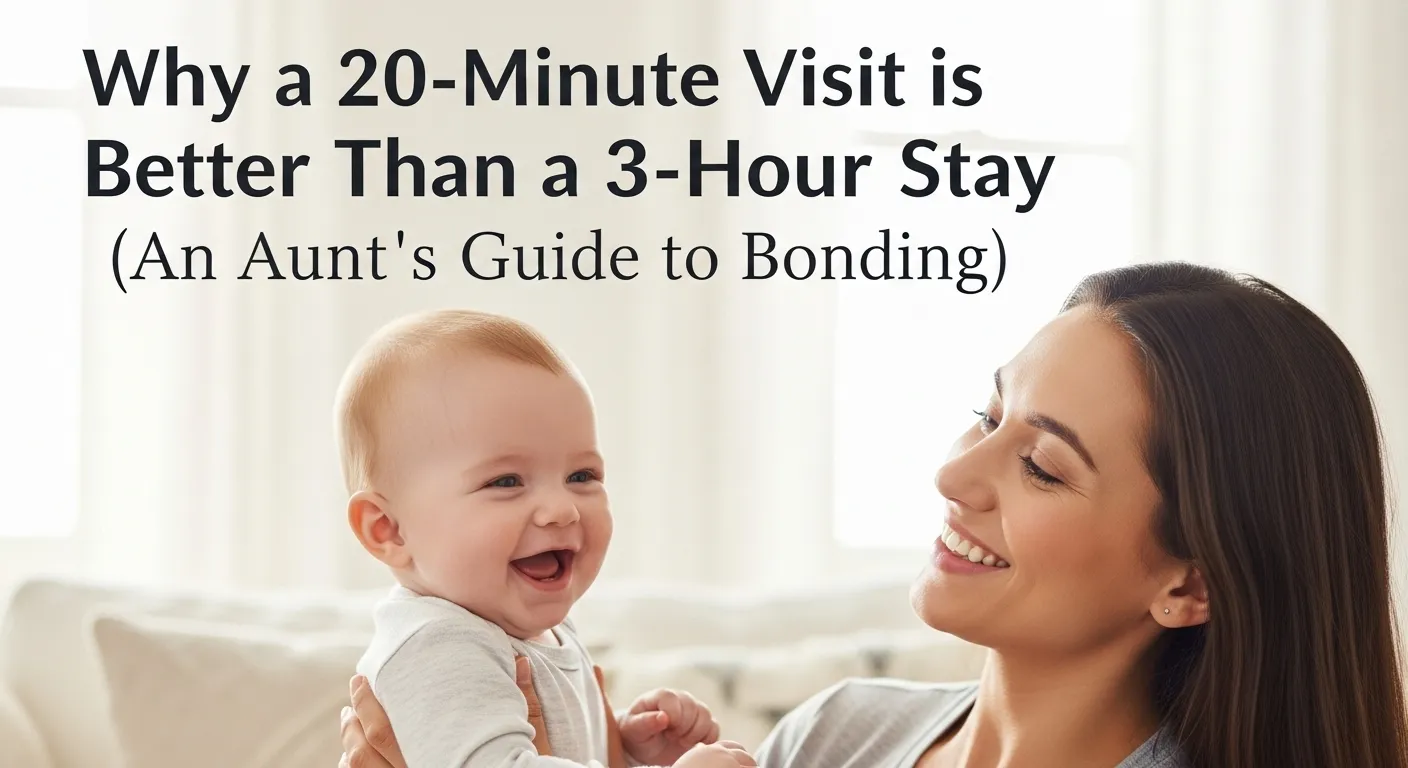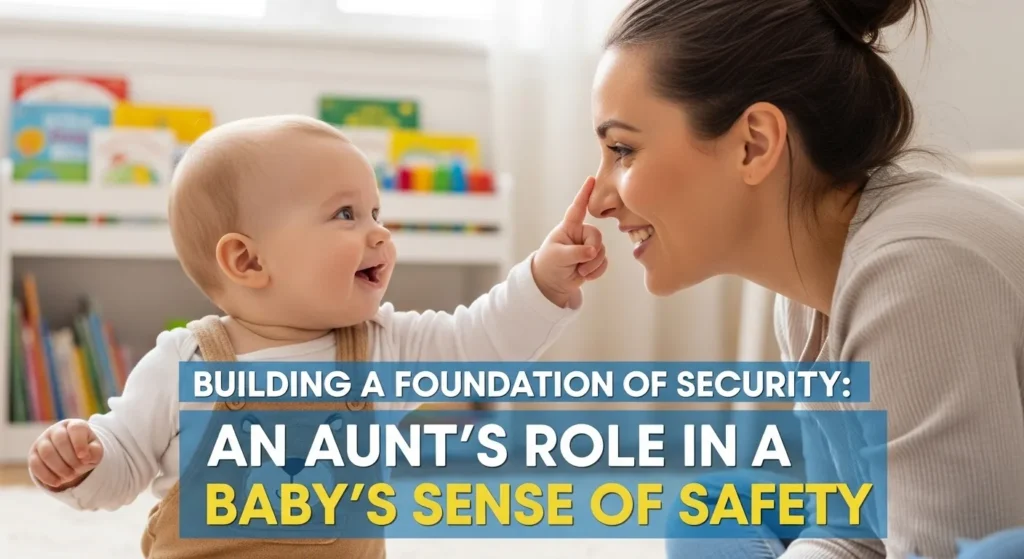
If you are an aunt with a busy life, you probably know the feeling of guilt. You feel guilty that you do not have enough time to visit your new niece or nephew. You worry that your visits are not long enough to make a real difference. You want to be a present and loving aunt, but how much time is really “enough”?
What if the secret to a strong bond is not about long, marathon visits? The surprising truth is that consistency is far more powerful than duration. Short, regular visits can build a much stronger and more meaningful connection than infrequent, long ones.
Why is a short, consistent visit more powerful than a long one?
Direct Answer: For a baby, the world is built on patterns and repetition. Frequent, positive interactions teach them that you are a reliable and permanent part of their life. Infrequent visits, even if they are long, can make you feel like a new stranger each time they see you.
Evidence: The goal is to become a familiar and comforting presence in the baby’s life. This is achieved through routine, not through grand gestures. In my book, Auntie of the Year, I emphasize this “quality over quantity” approach:
“Consistency is key. Aim to visit regularly, even for 15–20 minutes a few times a week. Your presence creates familiarity.”
Let’s focus on that word: familiarity. For a baby, what is familiar is what is safe. When you show up regularly, you become a predictable and comforting part of their weekly routine. You become one of their “people.” That feeling is far more important than the length of any single visit.
What can I actually accomplish in a 20-minute visit?
Direct Answer: You can accomplish the single most important thing: reinforcing your loving connection. A short visit is not about checking off a list of activities. It is about making a meaningful and positive point of contact.
Evidence: A short visit can be incredibly impactful if you are intentional. Here are four things you can do in 20 minutes or less:
- Give a Warm Hello: Enter the room with a big, happy smile and a gentle, excited voice. Let the baby see and feel your genuine joy at seeing them.
- Have Focused Floor Time: Get down on their level for just 5 or 10 minutes of uninterrupted connection. Sing one or two songs, read a quick board book, or just make silly faces.
- Give the Parents a Micro Break: A 20 minute visit is a huge gift to tired parents. You can say, “I have got the baby, please go drink your coffee while it is still hot!” Supporting them is supporting the baby.
- Have a Loving Goodbye Ritual: A warm hug, a kiss, and a clear “Goodbye, I love you!” reinforces the routine of your visits and teaches them about hellos and goodbyes.
How does this idea of consistency help me if I’m a long-distance aunt?
Direct Answer: The principle of consistency is exactly the same for long distance aunts. The only thing that changes is your method of visiting. For you, consistency means regular and predictable virtual visits.
Evidence: A scheduled 10 minute video call three times a week is far more effective for building a bond than a random, hour long call once a month. A routine call allows the baby to become truly familiar with your face and voice on the screen.
To make these virtual visits more effective, try creating a small routine. You could sing the same song at the start of each call, or show them the same puppet. This digital routine builds the same powerful sense of familiarity and connection that an in person visit does.
Frequently Asked Questions
I feel guilty that I cannot visit more often. How do I get over that?
This is a very common feeling for aunts. Remember that your love is not measured in hours on a clock. Focus on the quality and consistency of the time you do have. A baby feels your love through your warm and engaged presence, not by timing your visit.
What is the best time of day for a short visit?
The best time is usually when the baby is well rested and fed, which is often in the morning after their first nap or in the late afternoon. It is always a good idea to call the parents a little bit beforehand to find a good window in their schedule.
Does the baby really know the difference between a 20-minute visit and a 2-hour visit?
To a baby, the length of time is not the main factor. They operate on feelings and familiarity. They will remember the joy and comfort of your interaction, not how many minutes you stayed.


